While Intel was quick to hop on the AI trend with the release of its Intel Core Ultra 1 series processors, Intel didn’t abandon the mainstream market, especially the enthusiast segment as the brand still released its Intel Core Processor 14th Gen. Consumers who wanted peak performance to maximizes their productivity or gaming could go for Intel Core Processor HX Series (14th Gen): offering increased core count and efficiency compared to the previous generation. Let’s take a closer look at the Intel Core i7 14700HX and see how much we can squeeze out of the mobile CPU by overclocking it.
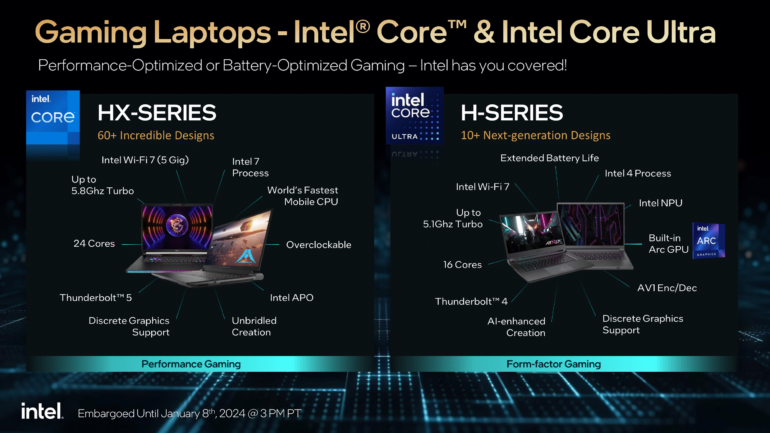
Intel Core Processors HX-Series (14th gen):
| CoresP+E/T | P-CoreBase | P-CoreTurbo | E-CoreBase | E-CoreTurbo | L3 Cache(MB) | Graphics | Base (W) | Turbo (W) | |
| i9-14900HX | 8+16 /32 | 2200 | 5800 | 1600 | 4100 | 36 | 32 EU | 55 | 157 |
| i9-13900HX | 8+16 /32 | 2200 | 5400 | 1600 | 3900 | 36 | 32 EU | 55 | 157 |
| i7-14700HX | 8+12/28 | 2100 | 5500 | 1500 | 3900 | 33 | 32 EU | 55 | 157 |
| i7-14650HX | 8+8/24 | 2200 | 5200 | 1600 | 3700 | 30 | 32 EU | 55 | 157 |
| i7-13700HX | 8+8/24 | 2100 | 5000 | 1500 | 3700 | 30 | 32 EU | 55 | 157 |
| i7-13650HX | 6+8/20 | 2600 | 4900 | 1900 | 3600 | 24 | 16 EU | 55 | 157 |
| i5-14500HX | 6+8/20 | 2600 | 4900 | 1900 | 3500 | 24 | 32 EU | 55 | 157 |
| i5-13500HX | 6+8/20 | 2500 | 4700 | 1800 | 3500 | 24 | 16 EU | 55 | 157 |
| i5-14450HX | 6+4/16 | 2400 | 4800 | 1800 | 3500 | 20 | 16 EU | 55 | 157 |
| i5-13450HX | 6+4/16 | 2400 | 4600 | 1800 | 3400 | 20 | 16 EU | 55 | 157 |
Following the steps of its 14th Gen desktop counterparts, the new HX-Series 14th Gen CPUs come increase clock speeds compared to its predecessors thanks to the improved Raptor Lake Mobile Architecture. The sweet spot in this generation is the i7 series as both the i7 14700HX and i7 14650HX have increased core counts apart from the core clock speed boost. This puts the new 14th-gen i7 CPUs closer to Core i9 territory rather than a small upgrade over a Core i5.
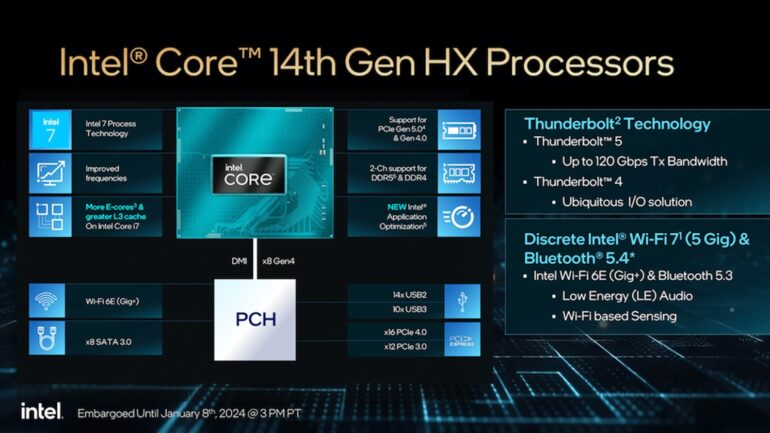
The Intel Core i7 14700HX is an ideal processor for gaming and productivity with its 8 P-Core and 12 E-Core setup with a total of 28 threads. That’s four more Efficient-cores over the previous gen i7 13700HX. The increased cores allows for more apps to run in the background for multitasking.
HX Overclocking – Benefits and Risks
The key advantage of Intel Core Processors HX-Series (14th gen) over Core Ultra mobile series is its focus on performance by having more cores due to the absence of the Neural Engine. Having more cores translates to increased performance. Intel further doubles down on the HX series by unlocking these CPUs meaning that they can be overclocked should users require more performance out of their laptops.
Overclocking has been regarded as an enthusiast only and risky experience but technology and features have evolved to the point where simply anyone could overclock with a click of a button – which we’ll get into later. The new 14th Gen mobile CPUs are all unlocked HX processors meaning Intel has made Overclocking possible for everyone and even without paying the supposed premium to unlock the feature as you would have on its desktop counterparts.
As mentioned earlier, you could simply overclock with the touch of a button and that’s possible through the Intel Xtreme Tuning Utility App. Intel XTU allows you to tweak your CPU’s clockspeed and voltages essentially giving you the ability to either overclock or underclock. For this article, we’ll focus more on overclocking part to showcase that it’s indeed possible to squeeze more performance on your mobile CPU despite it having more limitations compared to desktop CPUs.
While the HX Series CPUs are unlocked, laptop brands usually lock the overclocking setting on their respective BIOS settings to prevent accidental tweaks. If you’ve googled how to unlock your laptop’s OC setting then you’ve probably researched and know enough about overclocking to properly OC your laptop. In our case, MSI hides the setting on by requiring you to press CTRL+ALT+SHIFT+F2 to show it on the BIOS. Once enabled, the settings on the XTU should no longer be grayed out.
Overclock Settings – Stock vs One Click vs Manual
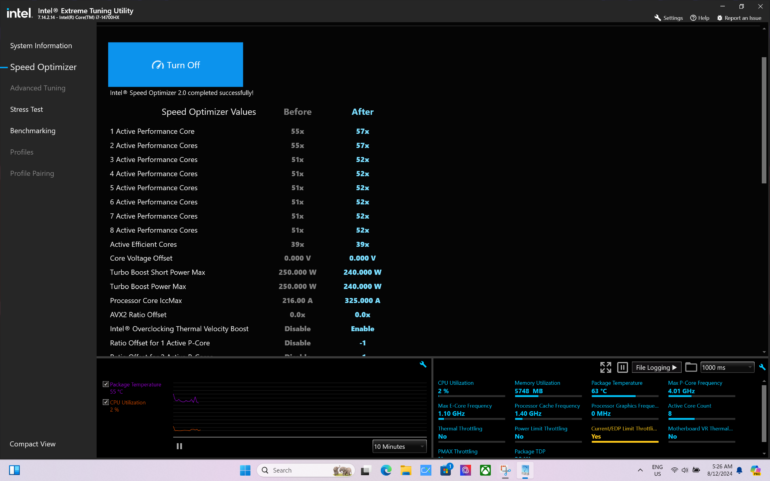
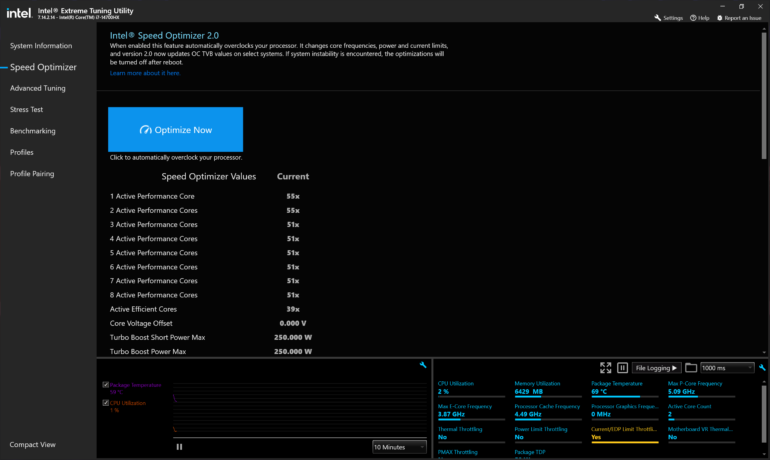
The performance gain you’ll get by overclocking depends on various factors such as silicon lottery, your laptop’s cooling, and your target workload. So, instead of drilling down each clockspeed, core ratio, and voltage setting, we’ll check out how good Intel XTU’s 1-Click Speed Optimizer is compared to our light overclock and see if there’s an actual performance benefit over the stock setting.
| Intel Core i7 14700HX Setting | Stock Value | Intel XTU Auto OC | Manual OC |
| 1 Active Performance Core | 55x | 57x | 58x |
| 2 Active Performance Cores | 55x | 57x | 57x |
| 3 Active Performance Cores | 51x | 52x | 52x |
| 4 Active Performance Cores | 51x | 52x | 52x |
| 5 Active Performance Cores | 51x | 52x | 52x |
| 6 Active Performance Cores | 51x | 52x | 52x |
| 7 Active Performance Cores | 51x | 52x | 52x |
| 8 Active Performance Cores | 51x | 52x | 52x |
| Active Efficient Cores | 39x | 39x | 39x |
| Core Voltage Offset | 0v | 0v | 0.025v |
| Turbo Boost Short Power Max | 100W | 240 W | 250 W |
| Turbo Boost Power Max | 80W | 240 W | 220 W |
| Processor Core IccMAX | 216 A | 325 A | 250 A |
| Ratio Offset | Disable | -1 | -1 |
| Turbo Boost Power Offset | 56 Seconds | 56 Seconds | 128 Seconds |
The 1-click Speed Optimizer 2.0 feature increase the max P-core clocks by 100Mhz with a +200MHz boost when using only 1 or 2 cores while also giving the i7 14700HX increased power from 80W/100W to 240W on short bursts of workloads. We could already see the performance benefit, especially on single core workloads with the settings as seen on our benchmarks below. We based our manual OC settings on the Auto Overclocking by tweaking some of the settings, particularly having a more aggressive Performance Core Ratio all while slightly dialing down the power consumption to have longer sustained clockspeeds.
Benchmark Setup and Test Methodology
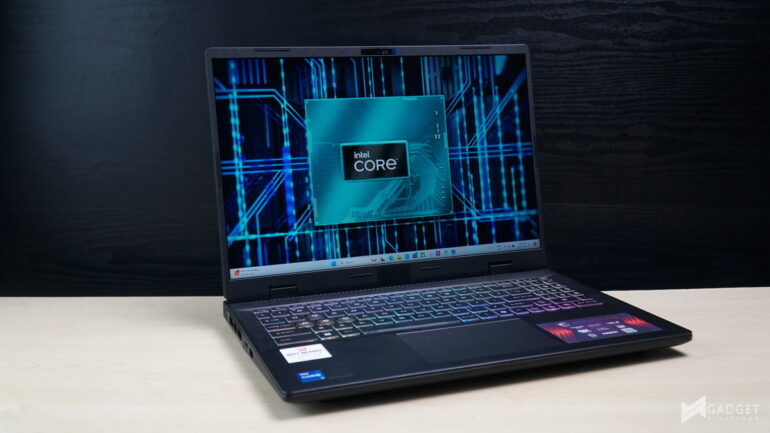
Gadget Pilipinas’ testing philosophy is to provide detail-oriented results as accurately as possible so that our readers can replicate our tests given that these conditions are met. Different benchmarking apps and sequences are used depending on the tested component or device.
We’ve applied our usual review benchmark methodology for this article but since we’re focusing on the overclocking aspect of the Intel Core i7 14700HX, we’ve dropped the laptop’s power profile settings as it messes mostly with the power distribution of the Intel Core i7 14700HX and RTX 4070 GPU. We’ve tested the overclocks under the Balanced profile and on 1200p and 1600p resolutions as a lower resolution is more CPU-bound to properly showcase performance improvements.
Intel Core i7 14700HX Synthetic Benchmarks
Cinebench 2024
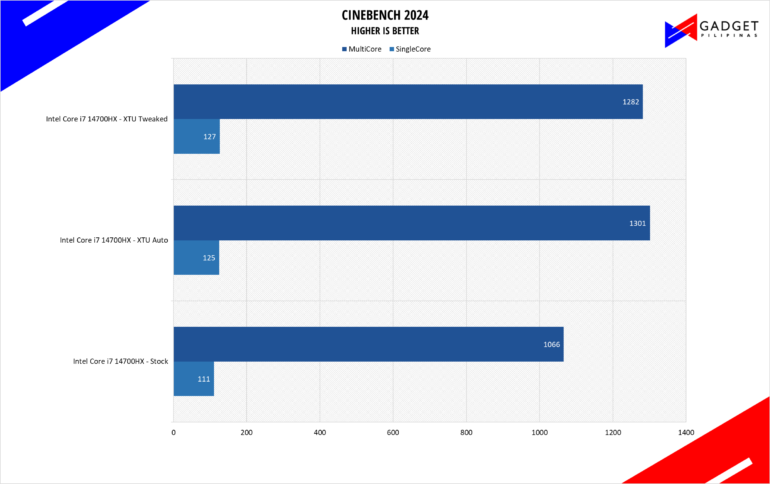
Geekbench 6
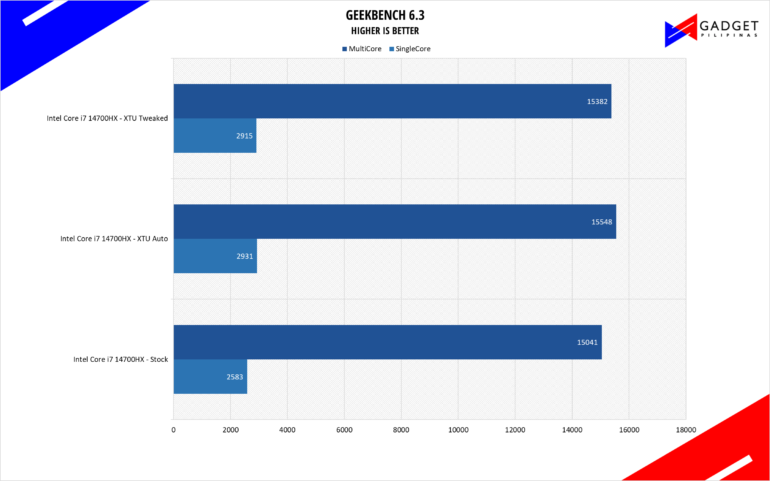
OCCT Enterprise
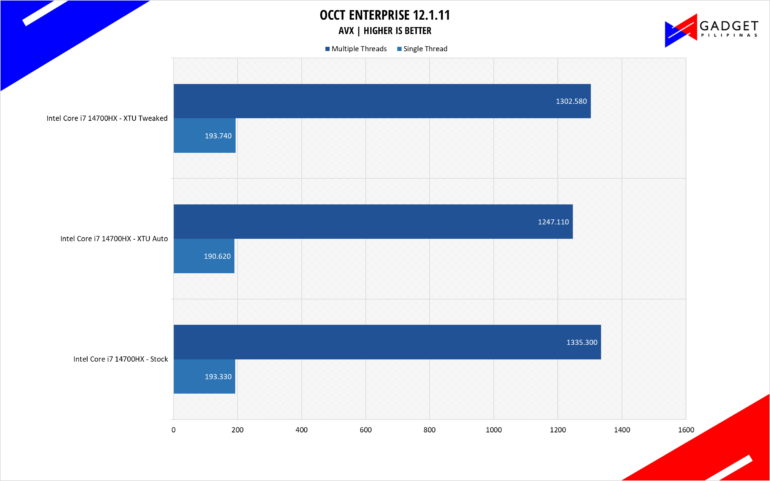
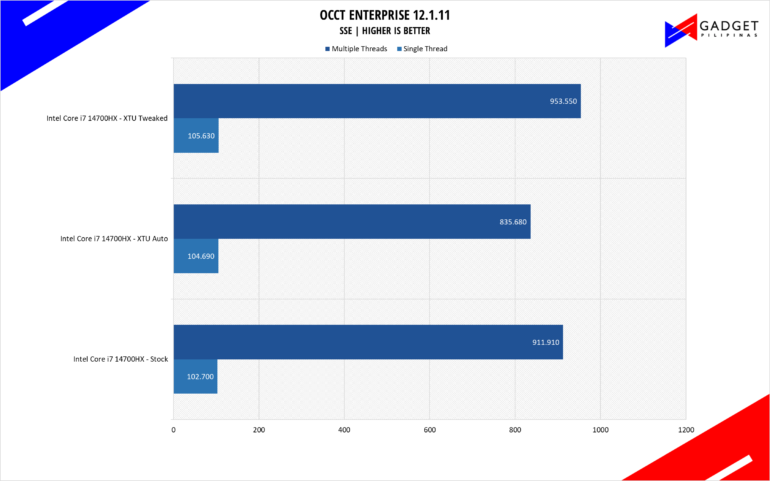
Crossmark
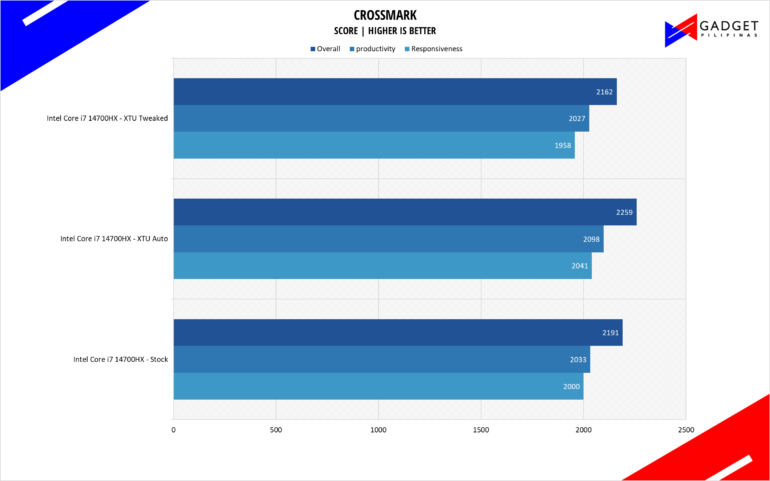
Octane

3DMARK – Firestrike, Timespy, Speedway, and Steel Nomad



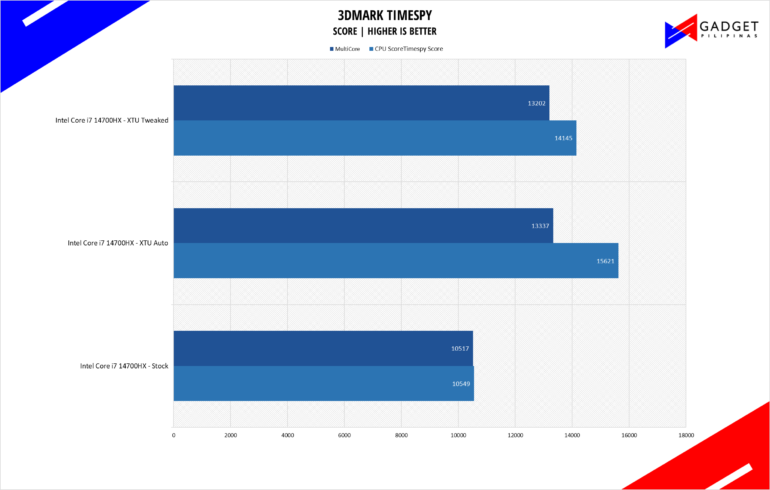
Superpi
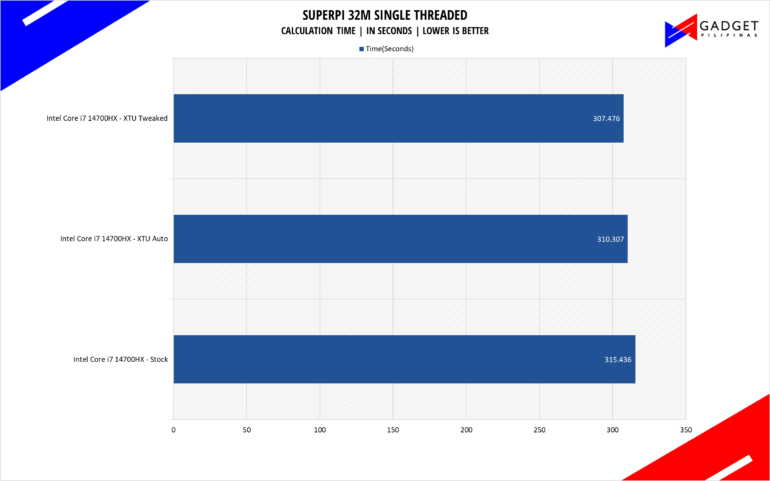
wPrime
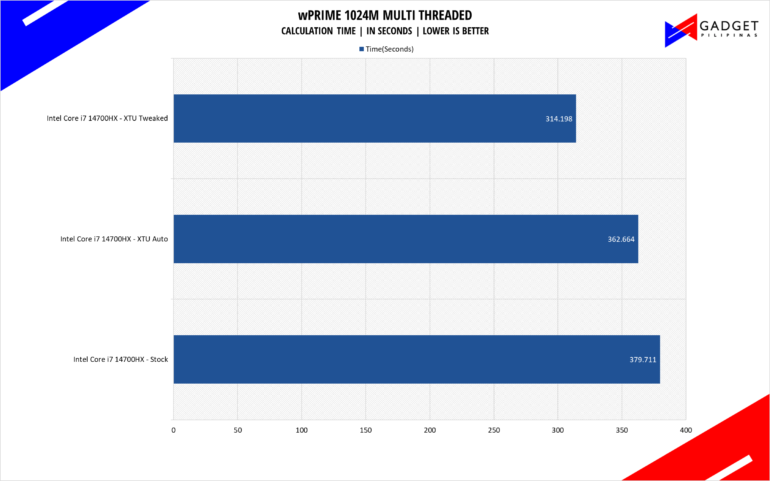
Intel Core i7 14700HX – Gaming Benchmarks
DOTA 2
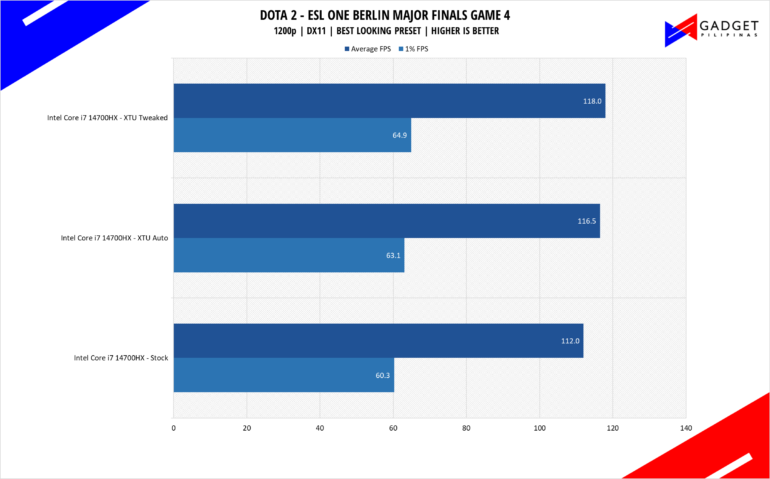
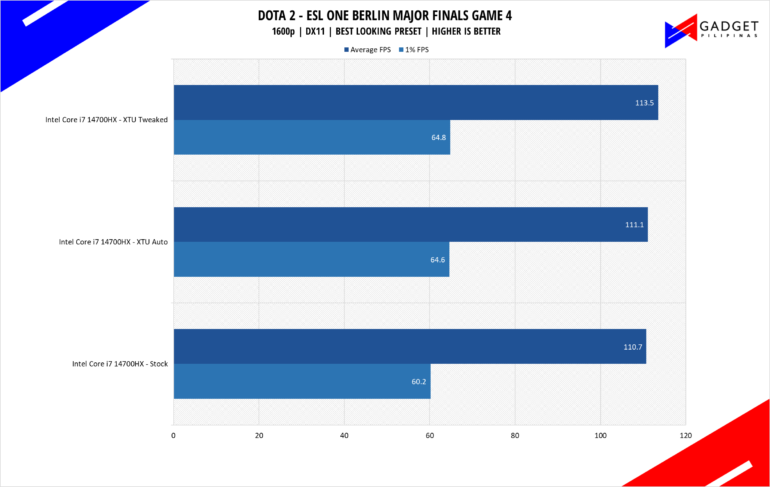
Cyberpunk 2077
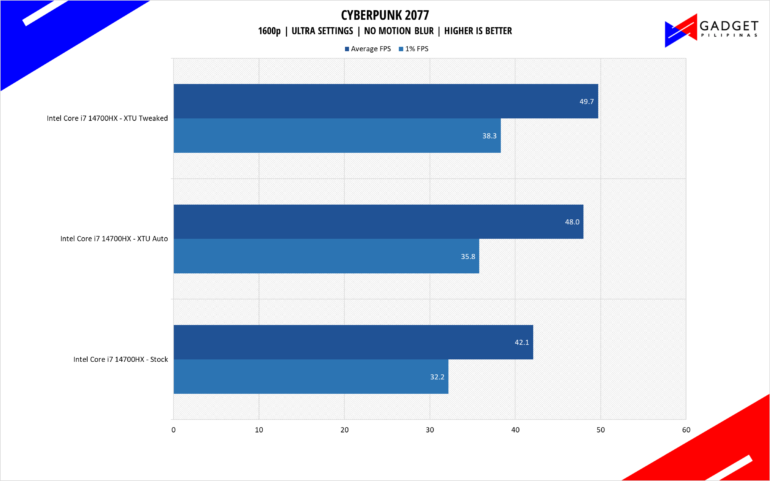
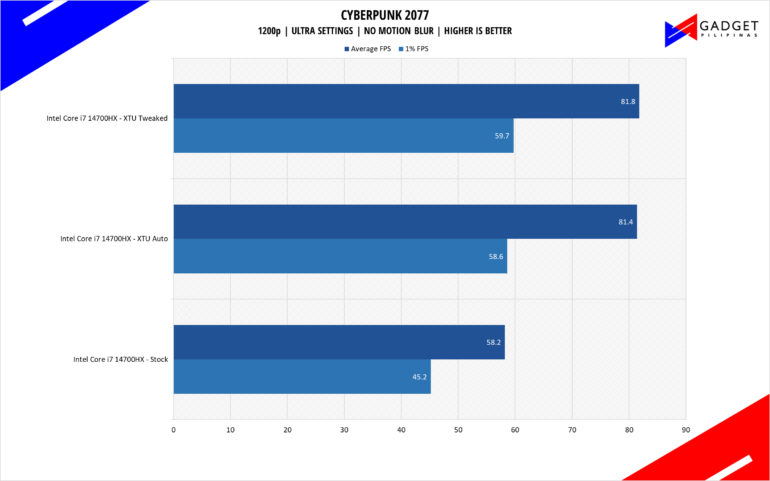
Horizon Zero Dawn
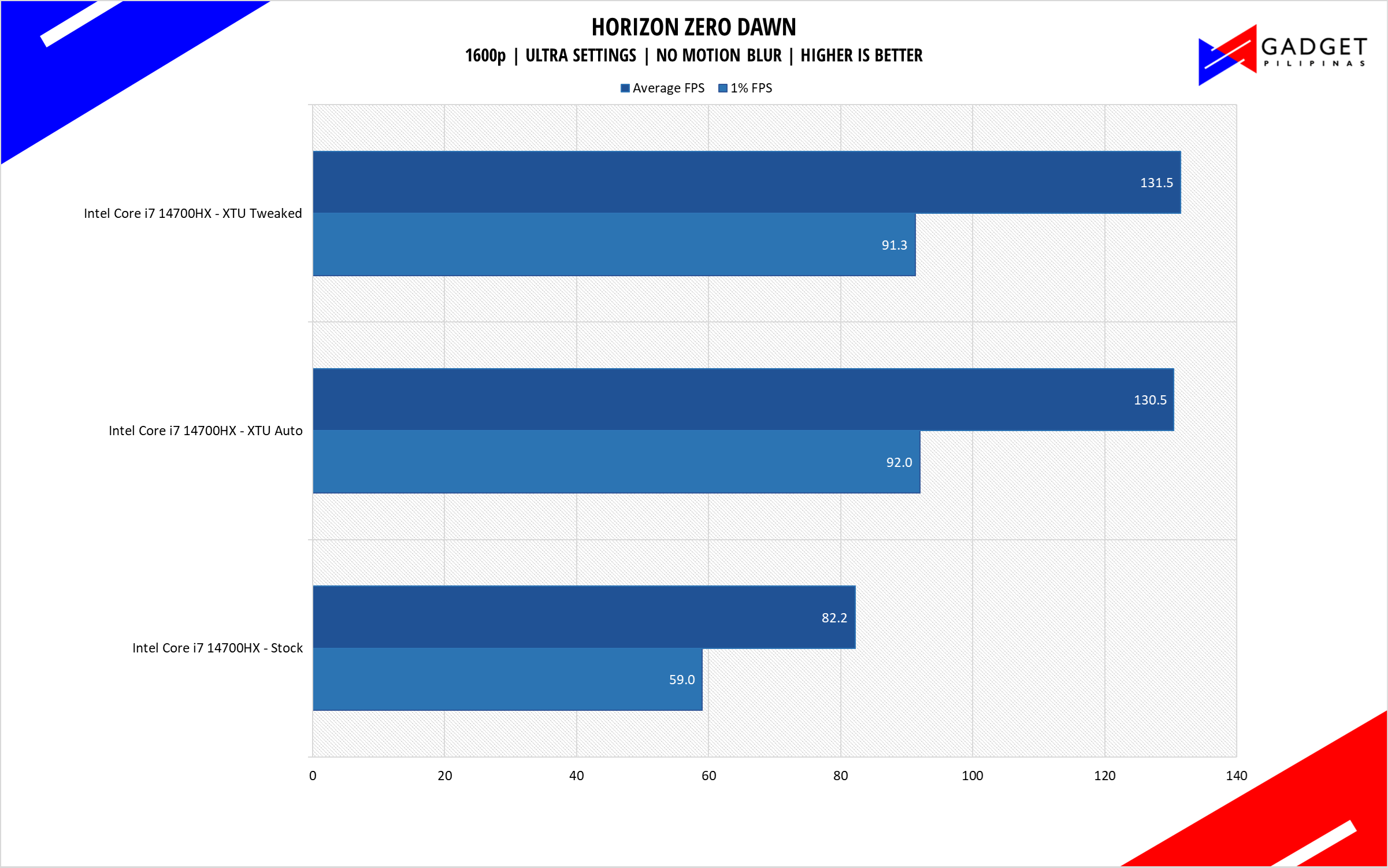
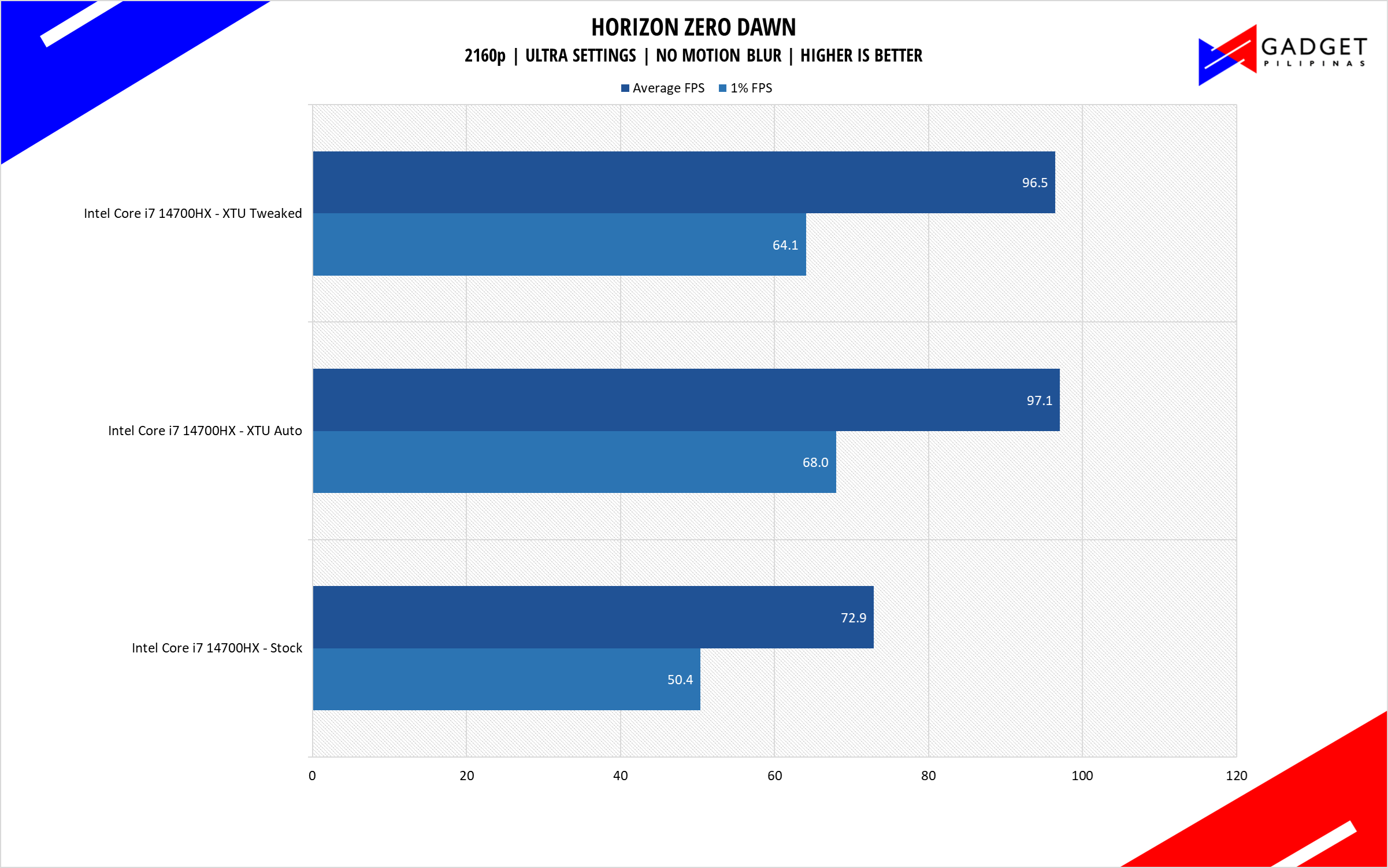
Metro Exodus
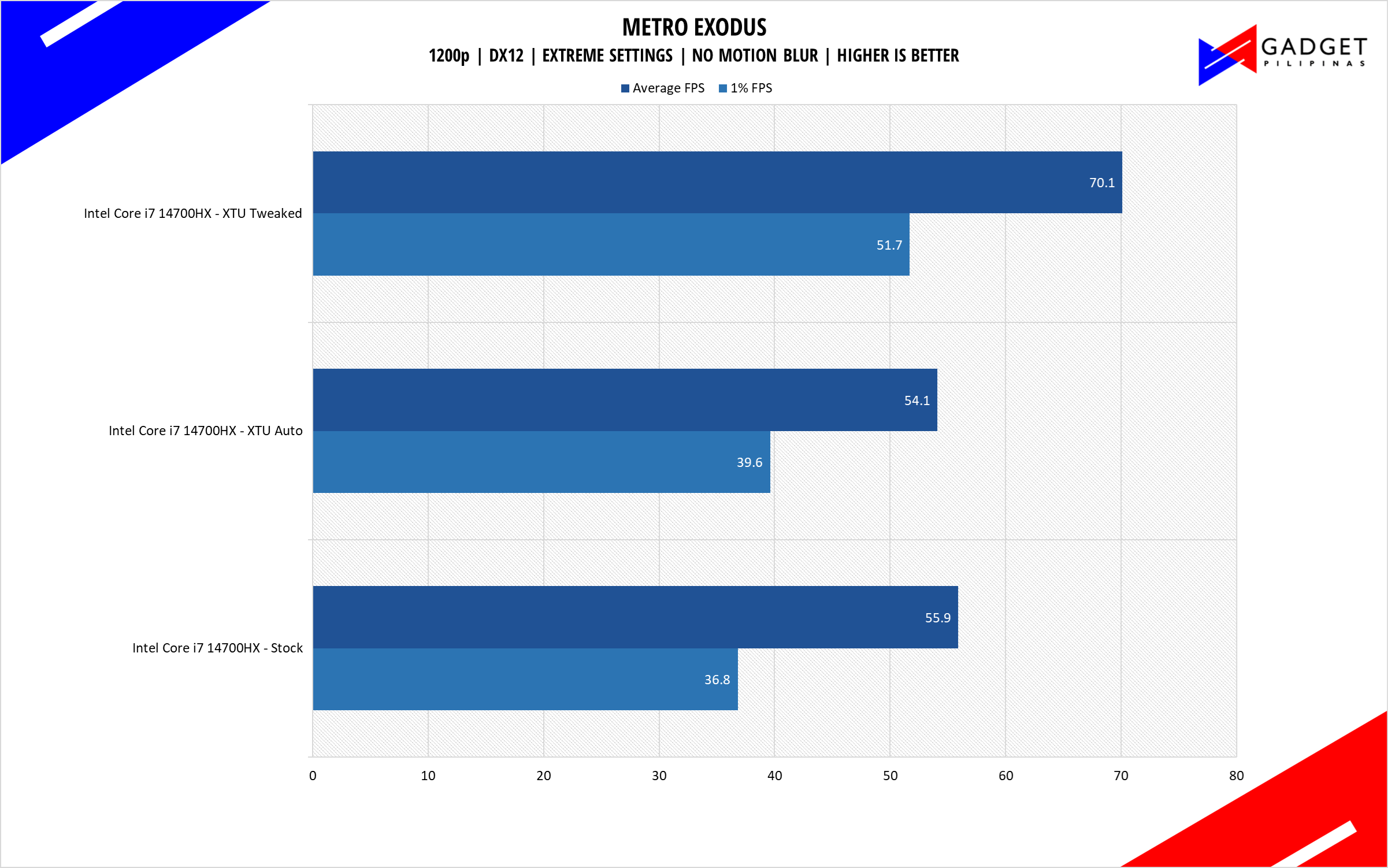
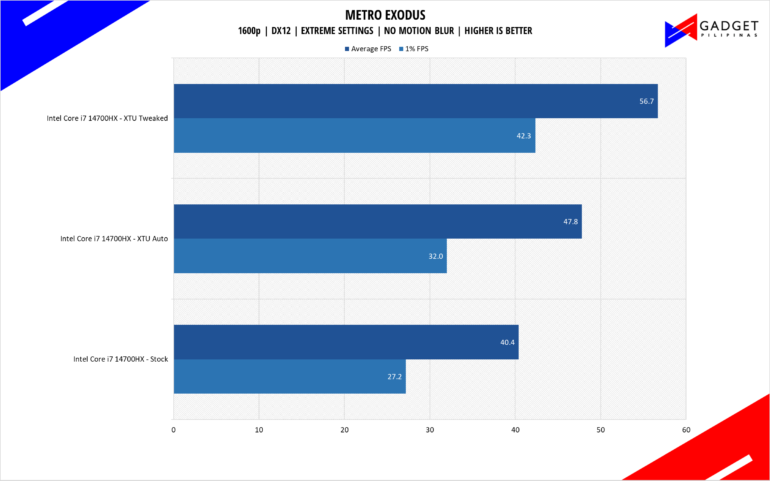
Returnal
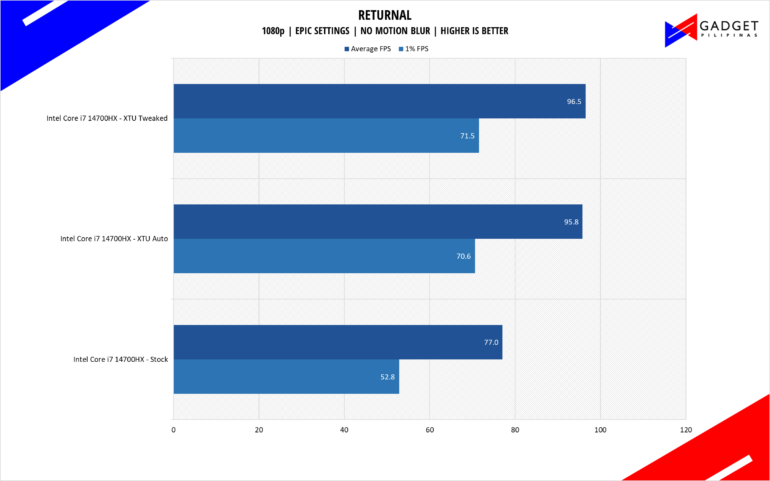
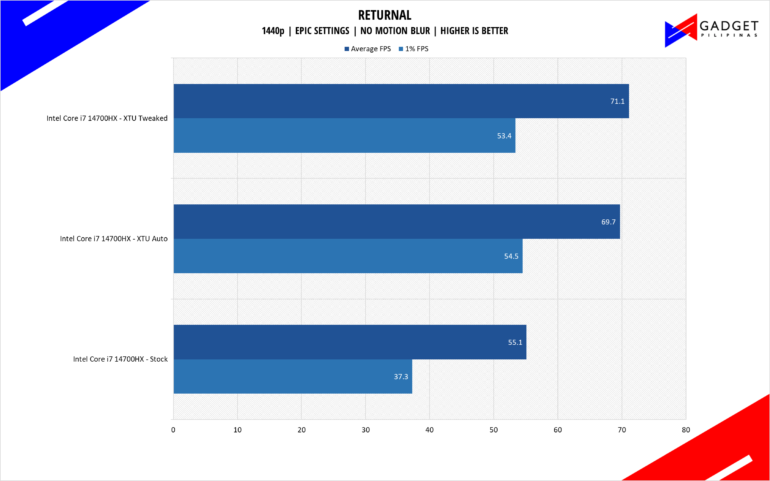
Far Cry 6
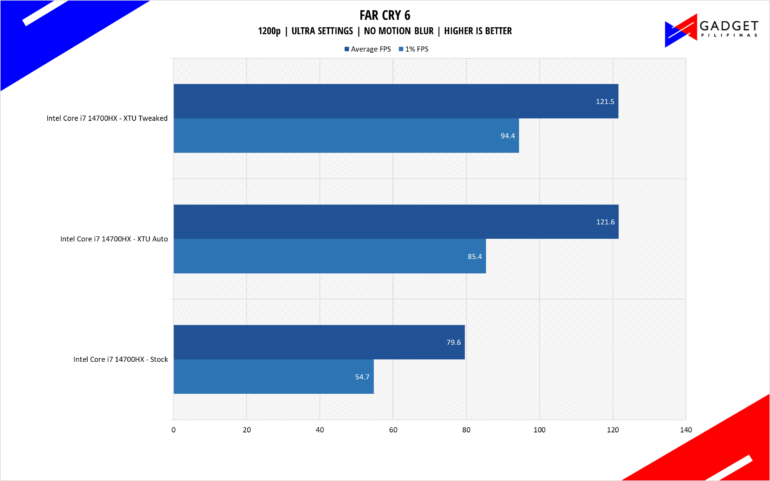
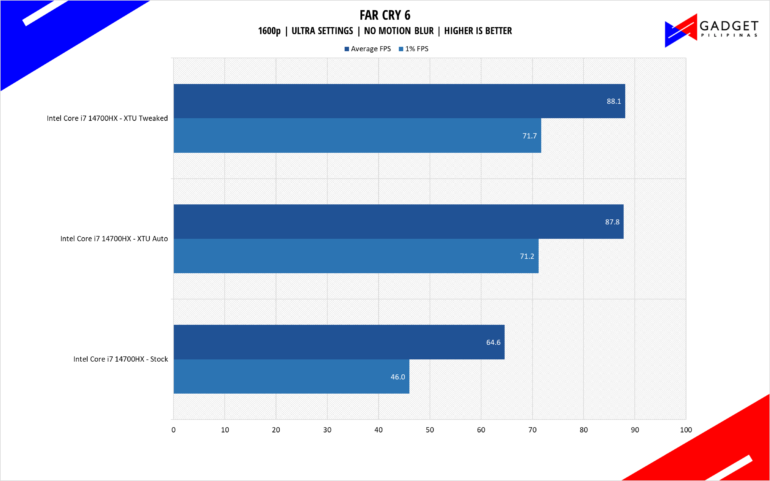
Shadow of the Tomb Raider
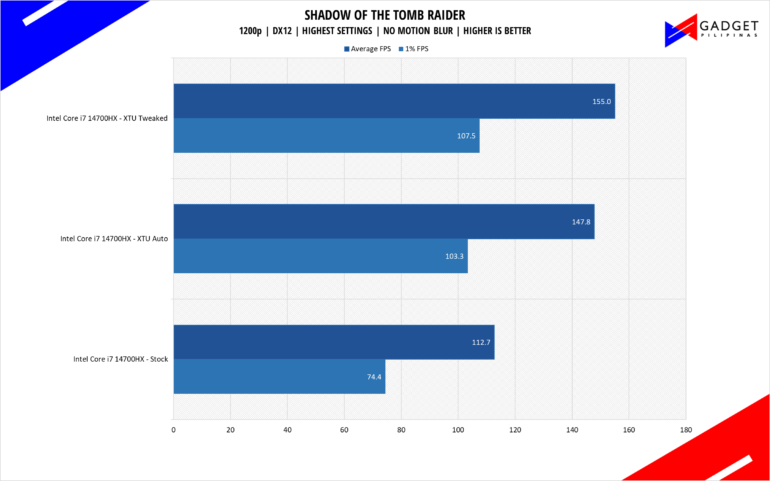
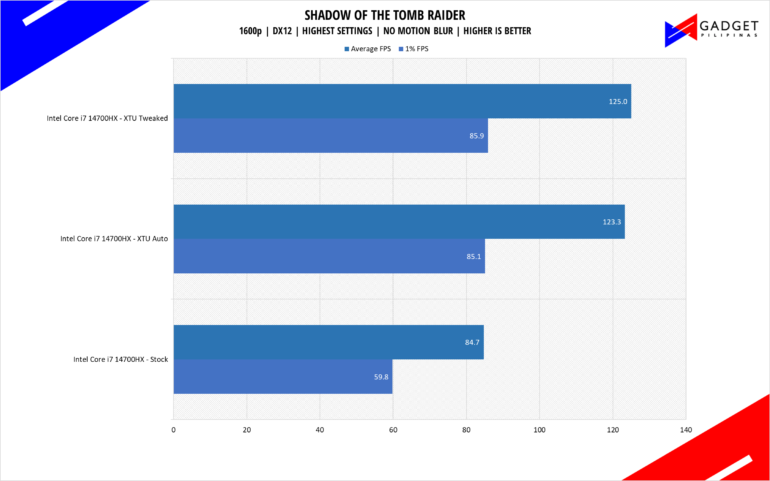
Rainbow Six Siege
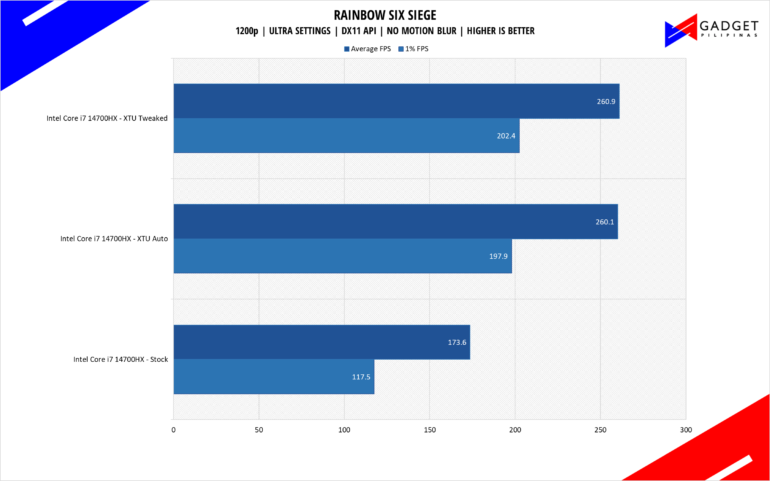
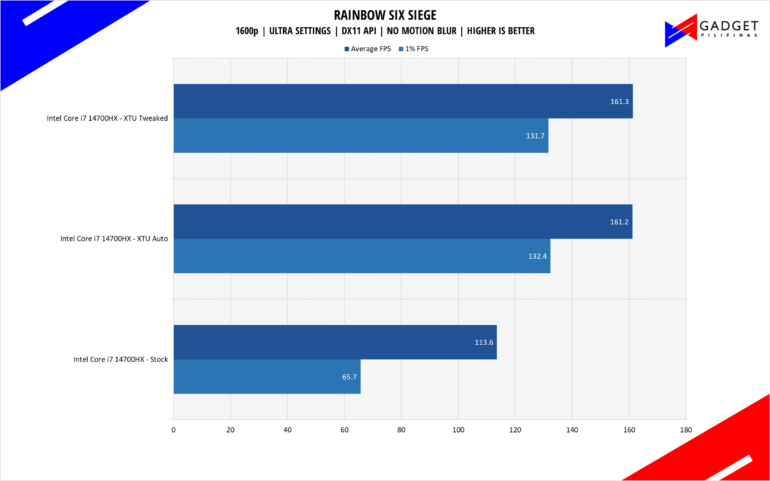
Intel Core i7 14700HX Temperatures
Applying our tweaks over the auto overclock setting particularly lowering the turbo wattage not only improved our benchmark numbers as shown in our graphs but also lowered our temperature from 98°C to 96°C. Coming from the 92°C temperature, a 4°C change for a 20% improvement is a welcomed tradeoff. Moreover, given our current settings, there’s definitely room to either tweak the wattages and voltages for a lower temperature or increase the core ratios for more performance. However, given our limited time with the laptop and the nuances of trial and error, we only set our goal to see how good the Auto OC feature is and beat it with very little tweaks.
Conclusion
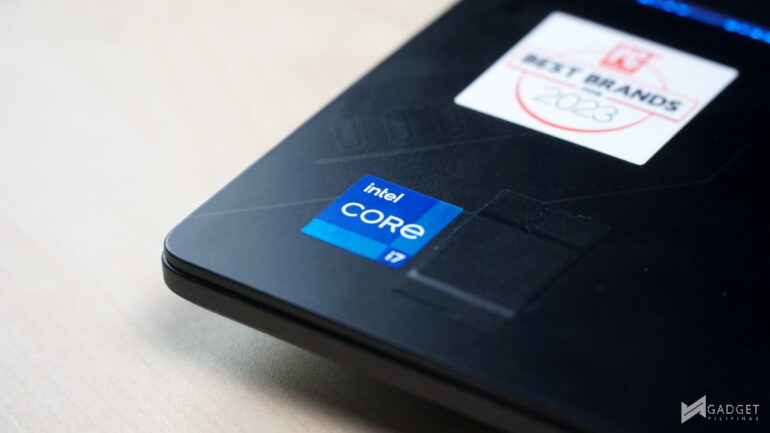
Overclocking used to be a very top-of-the-line feature that only flagship processors have and require a hefty premium due to the risky nature of overclocking and technological limitations back in the day. Today, while it is quite still the case for Desktop CPUs, Intel’s approach towards laptop CPUs particularly the latest 14th gen have changed the game – making the overall market very competitive especially when you’re comparing identical specced laptops from different consumers.
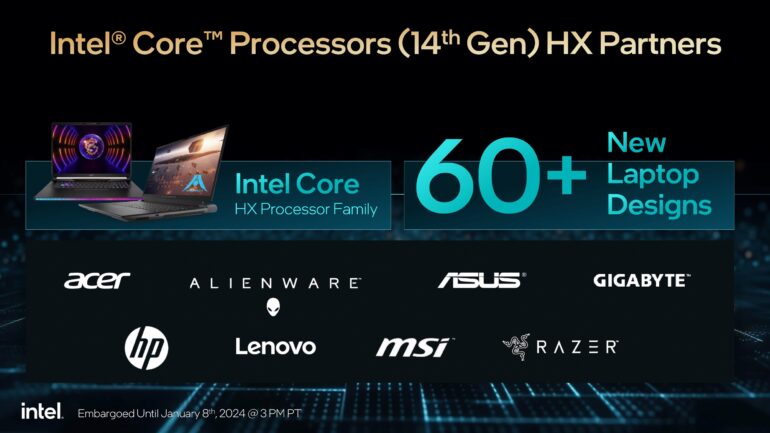
By streamlining its product line from providing H, HK, and HX CPUs on previous generations to a full HX series lineup for 14th-gen, Intel is able to produce more CPUs by reducing the cost of having to configure and bin multiple SKUs. This allows laptop manufacturers to place these more powerful CPUs in thinner devices and improve the cooling of their performance and gaming laptops so that users can get more out of their devices without actually having to pay more upfront.
Thanks to the improved Raptor-Lake Mobile Architecture, refined process technology, and better features, overclocking can now be done by the average consumer without much knowledge and risk of destroying your device. As shown in the XTU application, you only need to click one button and the app will handle it for you or you only need to tinker with the “ratio” and offsets compared to setting manual voltage and typing in the actual increments on previous generations.
While we focused on overclocking in this article, Undervolting is a safer route for those who are still scared of the concept of overclocking. Unlike overclocking, the goal of undervolting is to lower the power consumption of the CPU without losing performance resulting in lower temperatures and longer battery life.
Where to buy Intel 14th Gen HX Devices
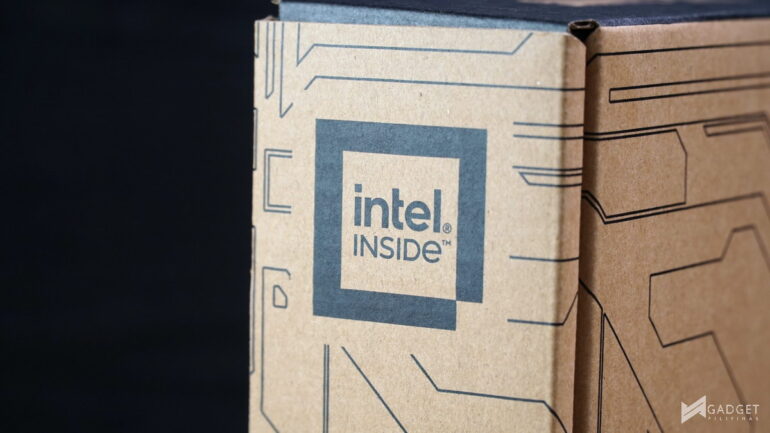
If you’re looking to buy Intel Core 14th Gen HX Series devices, be sure to select those with an Intel Core badge and Intel Evo versions with Intel Core Ultra at authorized dealers.
Grant is a Financial Management graduate from UST. His passion for gadgets and tech crossed him over in the industry where he could apply his knowledge as an enthusiast and in-depth analytic skills as a Finance Major. His passion allows him to earn at the same time help Gadget Pilipinas' readers in making smart, value-based decisions and purchases with his reviews and guides.






